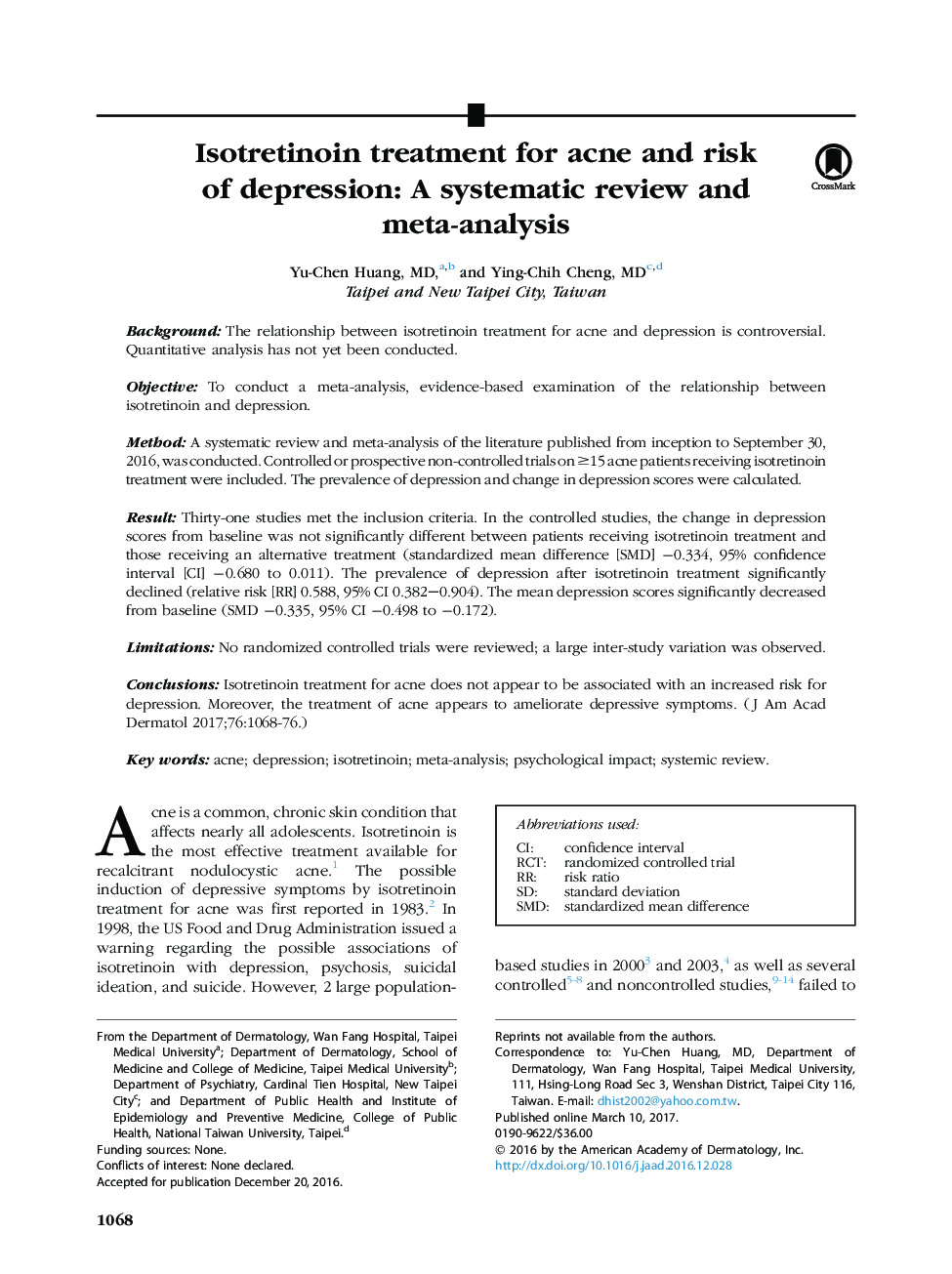| Article ID | Journal | Published Year | Pages | File Type |
|---|---|---|---|---|
| 5647849 | Journal of the American Academy of Dermatology | 2017 | 18 Pages |
BackgroundThe relationship between isotretinoin treatment for acne and depression is controversial. Quantitative analysis has not yet been conducted.ObjectiveTo conduct a meta-analysis, evidence-based examination of the relationship between isotretinoin and depression.MethodA systematic review and meta-analysis of the literature published from inception to September 30, 2016, was conducted. Controlled or prospective non-controlled trials on â¥15 acne patients receiving isotretinoin treatment were included. The prevalence of depression and change in depression scores were calculated.ResultThirty-one studies met the inclusion criteria. In the controlled studies, the change in depression scores from baseline was not significantly different between patients receiving isotretinoin treatment and those receiving an alternative treatment (standardized mean difference [SMD] â0.334, 95% confidence interval [CI] â0.680 to 0.011). The prevalence of depression after isotretinoin treatment significantly declined (relative risk [RR] 0.588, 95% CI 0.382-0.904). The mean depression scores significantly decreased from baseline (SMD â0.335, 95% CI â0.498 to â0.172).LimitationsNo randomized controlled trials were reviewed; a large inter-study variation was observed.ConclusionsIsotretinoin treatment for acne does not appear to be associated with an increased risk for depression. Moreover, the treatment of acne appears to ameliorate depressive symptoms.
